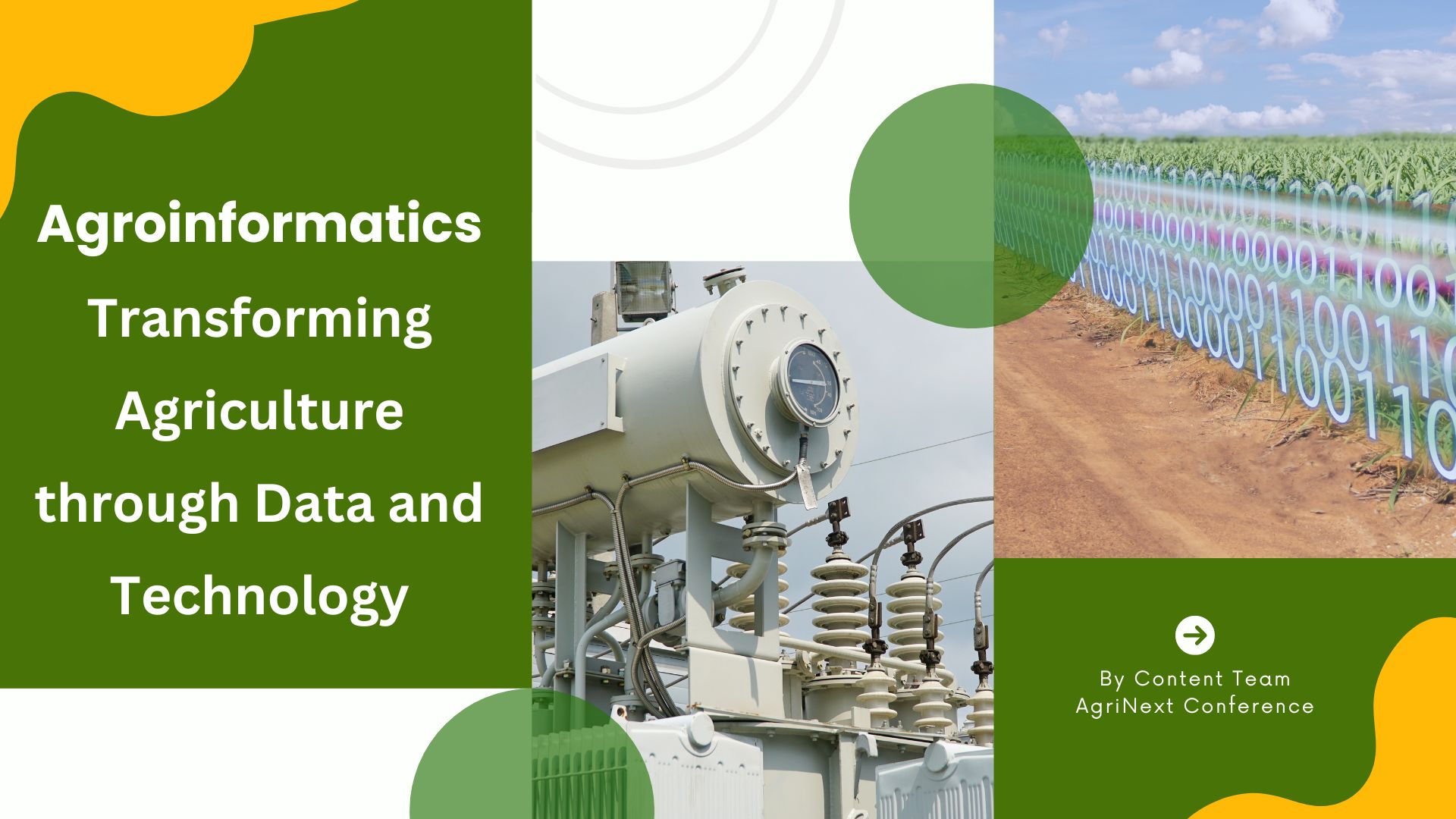
The future of agriculture is rooted in agroinformatics, where data becomes the fertile soil for cultivating a prosperous harvest.
In the 21st century, agriculture is undergoing a profound transformation, and at the heart of this revolution lies the fusion of agriculture and information technology — a discipline aptly named agroinformatics. This innovative field is reshaping traditional farming practices by harnessing the power of data, analytics, and digital technologies to optimize agricultural processes, enhance productivity, and foster sustainable practices.
In this age, agro-informatics is essential for various reasons, a few of which include food security, agriculture sustainability, bioenergy, natural resource conservation, carbon accounting, global climate change, policy formation, decision making et al.
Across the last decades, various development and research efforts have been initiated to fully utilize the potential of Information and Communication Technology (ICT) for improvement,and sustainable development of agriculture.
Agroinformatics, an interdisciplinary field, involves the collection, analysis, and of agricultural data to inform decision-making processes. It encompasses a wide range of technologies, including data analytics, sensors, artificial intelligence, and geographic information systems (GIS).
Precision Agriculture and Agro Informatics:
Precision agriculture, a key component of agroinformatics, leverages technology to optimize field-level management about crop farming. This includes precise application of resources, data-driven decision-making, and the integration of GPS-guided machinery for efficient farming practices.
Data collection and sensors in Agriculture
Agroinformatics relies heavily on data collected from various sources, such as sensors embedded in the field, satellite imagery, and weather stations. These sources provide real-time information on soil conditions, crop health, and environmental factors, enabling farmers to make informed decisions.
Geographic Information Systems (GIS) in Agriculture:
GIS plays a crucial role in geoinformatics by providing spatial analysis tools for mapping and monitoring agricultural landscapes. It helps farmers optimize land use, plan irrigation strategies, and assess the impact of environmental factors on crop growth.
Big Data Analytics in Agriculture:
The vast amount of data generated in modern agriculture requires sophisticated analytics. Big data technologies enable farmers to analyze large datasets, identify patterns, and gain insights into trends, helping them make data-driven decisions for crop management and resource optimization.
ArtificialIntelligence(AI) In Agriculture:
AI applications, such as machine learning algorithms, are transforming agriculture by predicting crop yields, identifying disease outbreaks, and optimizing planting schedules. AI enhances the ability to process complex data sets and derive actionable insights.
FarmManagementSoftware:
Agroinformatics provides farmers with advanced farm management software that integrates various data streams. These platforms offer features such as crop planning, resource allocation, and real-time monitoring, enabling efficient and sustainable farm management.
Challenges and Opportunities:
While geoinformatics holds immense promise, challenges such as data privacy, interoperability of systems, and the digital divide in rural areas need to be addressed. Additionally, opportunities for innovation and collaboration among geoinformatics professionals, farmers, and policymakers are essential for its continued growth.
Sustainable Agriculture and Agro Informatics:
Agroinformatics contributes to sustainable agriculture practices by optimizing resource use, reducing waste, and minimizing the environmental impact of farming activities. This aligns with global efforts to create a more sustainable and resilient food system.
Through agro informatics, various domains like artificial intelligence, neural networks, decision support systems, geographic information systems, genetic algorithms, and programming languages are intertwined to develop robust software that makes agriculture more equipped, accessible, and predictable for the digital age in which we are living.
Agriculture is one of the main concerns of India and it is also vital for its development. Agro informatics would not only create more employment in the field but will also help the farmers. Because there are still millions of small landholders who are not aware of modern methods of cultivation. In this way, agro informatics can also help them to simplify and reduce challenges like drought, disease, heat, cold, insect, and pest infestations through data extrapolation and predictions.
As the digital plow turns the soil of information, geoinformatics pioneers a new age of precision farming and sustainable growth.
Agroinformatics stands as a beacon of innovation in agriculture, ushering in a new era where data-driven decision-making and advanced technologies empower farmers to meet the challenges of a growing population and a changing climate. As the world embraces the digital transformation of agriculture, agroinformatics emerges as a key enabler for creating a more efficient, sustainable, and resilient future for global food production.
Signup For AgriNext Conference Newsletter

